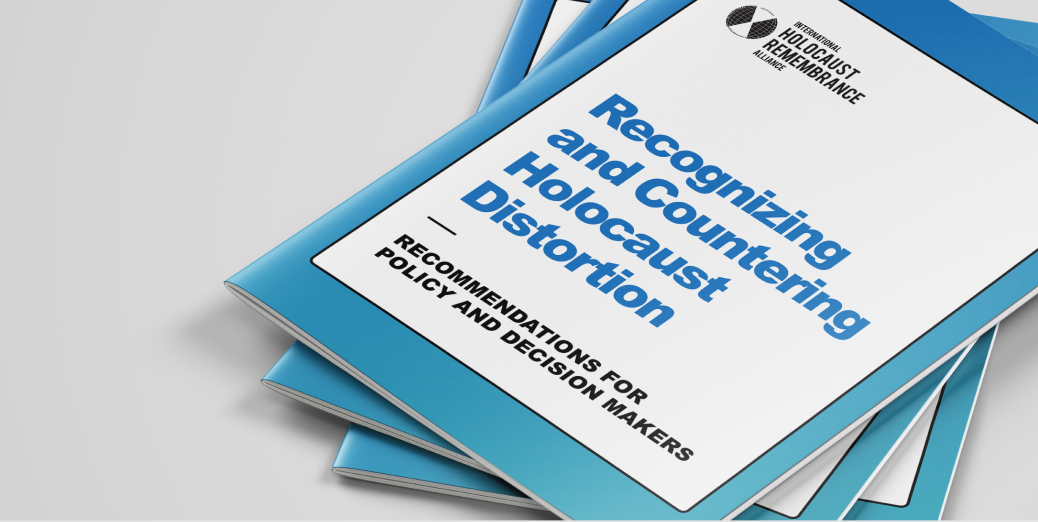
European Commission presents EU Strategy on combating antisemitism and fostering Jewish life
The European Commission has presented its EU Strategy on combating antisemitism and fostering Jewish life. With antisemitism worryingly on the rise, in Europe and beyond, the Strategy sets out a series of measures articulated around three pillars:
- to prevent all forms of antisemitism
- to protect and foster Jewish life
- to promote research, education and Holocaust remembrance
The Strategy proposes measures to step up cooperation with online companies to curb antisemitism online, better protect public spaces and places of worship, set up a European research hub on contemporary antisemitism and create a network of sites where the Holocaust happened. These measures will be reinforced by the EU’s international efforts to lead the global fight against antisemitism.
“Today we commit to fostering Jewish life in Europe in all its diversity. We want to see Jewish life thriving again in the heart of our communities. This is how it should be,” President of the European Commission, Ursula von der Leyen, said. “The Strategy we are presenting today is a step change in how we respond to antisemitism. Europe can only prosper when its Jewish communities feel safe and prosper.”
“Antisemitism is incompatible with EU values and with our European way of life,” Vice-President for Promoting our European Way of Life, Margaritis Schinas added. “This strategy – the first of its kind – is our commitment to combat it in all its forms and to ensure a future for Jewish life in Europe and beyond. We owe it to those who perished in the Holocaust, we owe it to the survivors and we owe it to future generations.”
Towards a European Union free of antisemitism
Some of the key measures in the Strategy include:
- Preventing and combating all forms of antisemitism: Nine out of ten Jews consider that antisemitism has increased in their country, with 85% considering it a serious problem. To address this, the Commission will mobilize EU funds and support Member States in designing and implementing their national strategies. The Commission will support the creation of a Europe-wide network of trusted flaggers and Jewish organizations to remove illegal online hate speech. It will also support the development of narratives countering antisemitic content online. The Commission will cooperate with industry and IT companies to prevent the illegal display and selling of Nazi-related symbols, memorabilia and literature online.
- Protecting and fostering Jewish life in the EU: 38% of Jews have considered emigrating because they do not feel safe as Jews in the EU. To ensure that Jews feel safe and can participate fully in European life, the Commission will provide EU funding to better protect public spaces and places of worship. The next call for proposals will be published in 2022, making available €24 million. Member States are also encouraged to make use of Europol’s support regarding counter terrorism activities, both online and offline. To foster Jewish life, the Commission will take measures to safeguard Jewish heritage and raise awareness around Jewish life, culture and traditions.
- Education, research and Holocaust remembrance: Currently, one European in 20 has never heard of the Holocaust. To keep the memory alive, the Commission will support the creation of a network of places where the Holocaust happened, but which are not always known, for instance hiding places or shooting grounds. The Commission will also support a new network of Young European Ambassadors to promote remembrance of the Holocaust. With EU funding, the Commission will support the creation of a European research hub on contemporary antisemitism and Jewish life, in cooperation with Member States and the research community. To highlight Jewish heritage, the Commission will invite cities applying for the title of European Capital of Culture to address the history of their minorities, including Jewish community history.
The EU will use all available tools to call on partner countries to combat antisemitism in the EU neighborhood and beyond, including through cooperation with international organizations. It will ensure that EU external funds may not be misallocated to activities that incite hatred and violence, including against Jewish people. The EU will strengthen EU-Israel cooperation in the fight against antisemitism and promote the revitalization of Jewish heritage worldwide.
Next Steps
The Strategy will be implemented over the period 2021-2030. The Commission invites the European Parliament and the Council to support the implementation of the Strategy and will publish comprehensive implementation reports in 2024 and 2029. Member States have already committed to preventing and fighting all forms of antisemitism through new national strategies or measures under existing national strategies and/or action plans on preventing racism, xenophobia, radicalization and violent extremism. National strategies should be adopted by the end of 2022 and will be assessed by the Commission by end of 2023.
Sign up to our newsletter to
receive the latest updates
By signing up to the IHRA newsletter, you agree to our Privacy Policy




